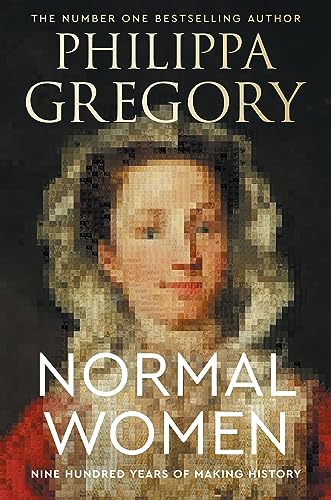Normal Women: Nine Hundred Years of Making History
“Have you any notion how many books are written about women in the course of one year?… Are you aware that you are perhaps the most discussed animal in the universe?” Virginia Woolf is aptly quoted in this capacious feminist history by novelist Philippa Gregory. A compendium of historical records and sources, naming women, dates, places, and shocking acts of female repression and rebellion, the project spans nine centuries. Chapters are subdivided by topics, some recurring unfailingly: Marriage, Education, Prostitution, Widows, Single Women, Protest. Other topics—Abbeys and Convents, Women at War, Crime and Punishment—are specific to early centuries: “1066–1348 Doomsday,” the violent period ensuing the Norman Conquest of England. The brutal, invading William of Normandy destroyed Anglo-Saxon power, marking the end of an England of “good lordship” wherein women had some legal rights. In this tome, as in history, the darting back and forth, loss and gain, of women’s legal, spiritual, and sexual rights proves no straight arrow.
“Women Rising” includes Courtly Rape, opening with the Black Death of 1348; “Women at War” might surprise readers in how women seized military leadership roles and physically fought. Ironically, “manly” Elizabeth I succeeds to the throne in “Becoming a Weaker Vessel,” authorizing a new state religion in which women may speak to God, until William Tyndale’s translation of the Bible damned all women by defining them the “weaker vessel.” “Locked out and Locked in” introduces new themes: Love and Marriage in Novels and Romanticism; “Making a Lady” contextualizes slavery and protests against slavery; “Separate Spheres” chronicles marriage, sapphism, working-class protests, and suffrage. Women join the WWII effort, gaining the vote in the penultimate chapter, followed by “Woman Today” (1945–1994), and an Afterword. Exposing unscientific theories of women’s nature, Aristotle through Darwin, Gregory’s narrative presence prevails.










